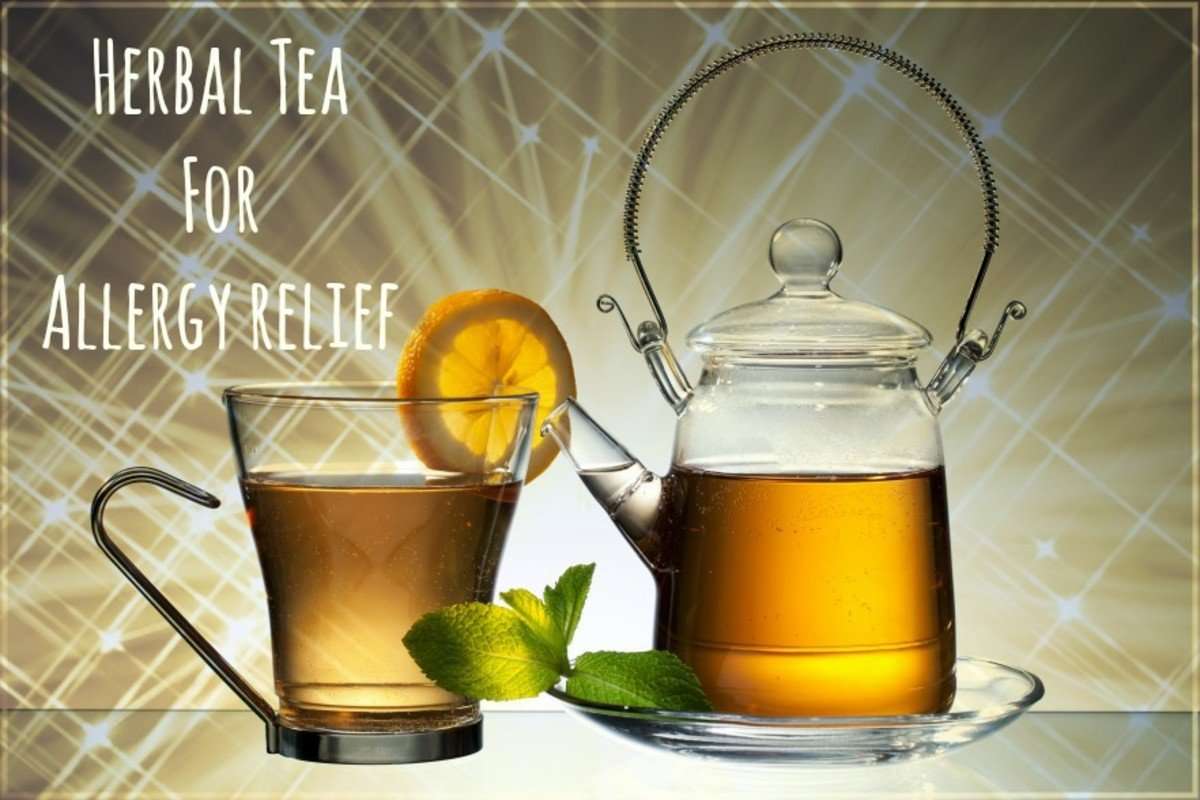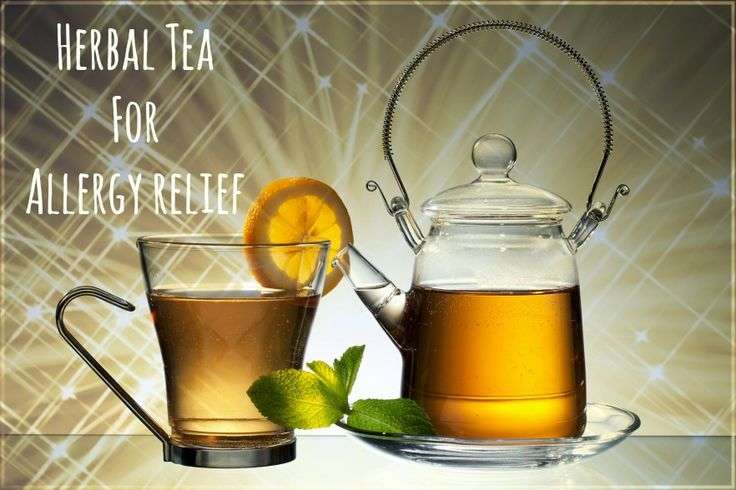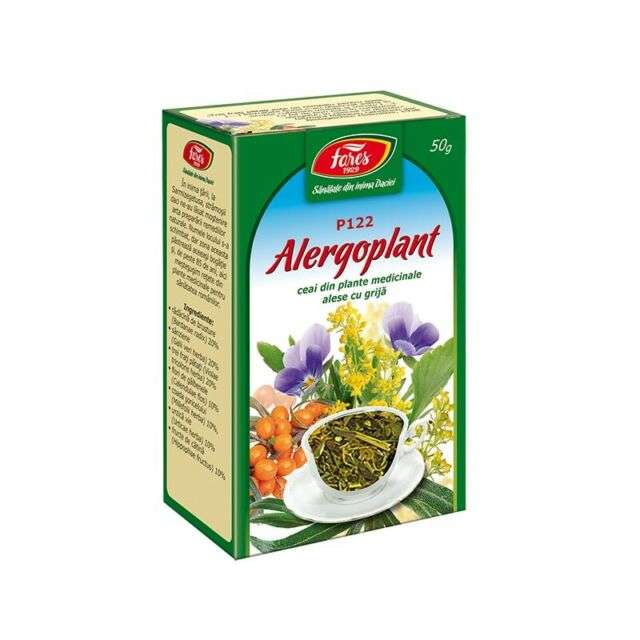How To Use Ginger Tea Effectively
The key is to consume ginger consistently. In the 2015 study I mentioned, results happened gradually over 1 to 2 months. This is not an overnight cure, and it takes at least a few days to start feeling relief. To make the tea, simply bring fresh ginger slices to boil in a pot of water. Once boiling, lower the heat and cover let simmer for 15 minutes to get a strong brew!
-
Nice article!Although it would be great if you could also share the link of those studies of referals. Thanks for sharing how to use ginger infusion effectively. < 3Great article
Spice It Up With Garlic
Garlic and its relative, the onion, stimulate many of the same pathways as peppers to reduce inflammation and pain. Allicin, a sulfur compound created when garlic is crushed or cut, is antibacterial, antifungal, and even kills some viruses, too.
Garlic has powerful antioxidant and anti-inflammatory properties that make it a perfect addition to any meal. Not only do your sinuses benefit, but its great for protecting the heart and fighting the common cold. What makes garlic so great is you can easily add it to your meals. Its a very versatile spice that goes well with almost anything! Try these garlic mushroom burgers for a tasty and healthy meal packed with garlic.
What makes garlic so great is you can easily add it to your meals. Its a very versatile spice that goes well with almost anything!
Read Also: Latex Allergies And Foods To Avoid
What The Study Found
The 2002 study built on previous work that had shown EGCGs ability to relieve some allergy symptoms in mice. In those previous studies, the compound had been administered and results were observed, but no mechanism was found. The more specific 2002 study, performed at Japans Kyushu University, discovered why allergic reactions in mice appeared to improve after EGCG was administered. What it found is that the compound inhibited the production of chemicals in the body that are responsible for starting and continuing allergic reactions. With these chemicals blocked, reactions were eliminated or reduced.
You May Like: How To Remove Tea Stains From Carpet
Other Herbs You May Want To Try
Nettle:
This is a great herbal tea for those suffering from hayfever as it is very good for all the usual symptoms of a runny nose and sneezing and relieving those sore, itching and watering eyes too.
Peppermint:
Peppermint can help to ease the congestion of the sinuses and nose that often come with allergic rhinitis. In addition, peppermintâs anti-inflammatory and anti-bacterial action can help to prevent a secondary infection that can be a problem if blood vessels get damaged after repeated nose blowing. For these reasons, it is often used in combination with nettle .
Rooibos:
This South African tea is naturally caffeine free and has a natural sweetness that makes it a very good first introduction to herbal tea drinking as some teas can be quite bitter and something of an acquired taste.
As a tea for allergies, Rooibos works by inhibiting histamine production in the body. The ingredients in the tea responsible for this effect are the bioflavonoids quercetin and rutin. The good news is that you can also use cooled Rooibos tea directly on your skin if you have an insect bite or sting or skin irritation.
Yerba Mate:
This South American herb does contain caffeine so probably not a good choice of bedtime drink. But, as an effective allergy tea, it damps down the bodyâs immune system response to allergens and reduces inflammation. It also helps with sinus congestion and colds because it helps to open the respiratory passages.
Green Tea For Allergies: What Does The Science Say

For as long as people have suffered from allergies, they have been looking for ways to alleviate the symptoms of them. In recent years, green tea for allergies has caught on because of a study published in 2002. That study suggested that one of green teas main antioxidants, EGCG, could help fight allergy symptoms. But does drinking a cup of tea really have the potential to help relieve your allergies?
You May Like: Hibiscus Tea For Menopause
Honey Ginger Allergy Relief Tea
Ginger
With anti-inflammatory benefits that rival those of NSAIDs, ginger not onlyhelps to lower the risk of infections,it also helps break down toxins buildup in your organs. Ginger root is also known to cleanse the lymphatic system, which is basically our bodys sewage system.
If your allergies are causing an overproduction of phlegm, ginger will help break it up, easing your congestion while giving your immune system a boost.
Lemon
All citrus are high in vitamin C, which helps boost your immune system and fills your body with antioxidants. Lemon especially helps to loosen mucus so that your body can easily eliminate it.
Apple cider vinegar
If youre even a little crunchy, you probably know that apple cider vinegar has a million + 1 uses. But did you know that it helps to break up and reduce mucous in your body, keeping your sinuses clear? Its antibacterial properties are also useful for sore throats and keeping infections away.
Honey
Full of vitamins and minerals , honey is also full of friendly bacteria, making it anti-fungal, and probiotic. To get the most benefits from your honey, make sure that its local and raw, if possible.
In the recipe card Ive linked to some of the products from my affiliate partners that I like to use. Purchasing through these links wont cost you anything extra. Thanks!
Is All Herbal Tea Safe For Kids
Simply because tea is made from herbs does not make it safe for children. Kathi Kemper, MD, director of the Center for Holistic Pediatric Education and Research at Children’s Hospital in Boston, examined the evidence behind the herbs most commonly given to children, in tea or supplement form. Her recent study concluded that in many cases, there isn’t enough scientific evidence to prove that herbal remedies are safe for kids.
If you have any concerns or questions about a kind of herbal tea or want more information about whether it is safe for your child, contact their doctor.
Also Check: What Ingredients Are In Long Island Iced Tea
So What Can You Do For Seasonal Allergies
Many people turn to over-the-counter antihistamines, but not everyone wants to rely on prescriptions to save the day.
Did you know there is a natural way of aiding seasonal allergies?!
Drinking tea!!!
Several herbal teas contain natural properties that help relieve seasonal allergies. Lets take a look at some of the best teas for seasonal allergies to help prevent you from sneezing your way through the summer.
If you suffer from hayfever
What Exactly Are Allergies
Before we look further into herbal teas, let me explain what causes allergies in the first place.
Allergy is not a disease but occurs when our immune system becomes hypersensitive to something that is normally considered harmless. This triggering substance is called an allergen.
Common allergens include:
- Foods
- Tree and grass pollen
- Dust mites
There are many types of allergies including, food, drug, and insect allergies. Yet, in this guide, I will focus mainly on herbal teas that can relieve respiratory allergies such as hay fever .
Read Also: Gold Peak Diet Tea Caffeine Content
This Is The Best Tea For Allergies Hands Down
Pollen aint got nothing on this.
Allergies are no fun. Next time youre feeling particularly itchy, sneezy, and generally gross, you may want to reach for a cup of herbal tea. Our suggestion? The Republic of Teas Nettle SuperHerb Tea Bags With Peppermint and Vanilla. But before we talk about that, lets take a deeper look at seasonal allergies:
The Best Tea For Allergies:
It’s allergy season! Sigh! Troublesome, right? If you can relate to it, this is a must-read article for you. We are sure you must want to get rid of those runny noses, red eyes, non-stop sneezing and what not? Allergies are the most annoying phase of the season. Its amazing some people are totally unphased by that, but for us, let’s check out how we can eliminate these annoying microorganisms that are tickling our comfort.
Also Check: Does Starbucks Have Boba
The Best Tea For Allergies: Fight Sneezing And Congestion
You know its allergy season when your eyes start to water, you can’t stop sneezing, and you feel your chest tighten in response to common allergens. Whether your allergies are triggered by furry friends, pollen, or plants the symptoms can often be unbearable. Fortunately, there are antihistamines and teas that can help to offer temporary relief from allergy symptoms. Discover the best tea for allergies with this handy guide that will help you feel better fast.
Seasonal Allergy Causes And Symptoms

Seasonal allergiesalso called hay fever or allergic rhinitisare caused by your immune systems overreaction to outdoor allergens . Typically, this happens after exposure to certain trees, grasses, and weeds.
Signs of seasonal allergies include:
- Itchy eyes
- Fatigue
Because of these irritating symptoms, allergic rhinitis is often confused with the common cold.
Of course, severe and persistent allergies warrant a trip to the doctor. Best case scenario: They can prescribe you medications that will treat your condition quickly and effectively. Worst case scenario: They discover an underlying illness thats causing your symptoms. Either way, youll be better off for having seen the doc.
Just to be clear, were offering this advice as a possible treatment for mild seasonal allergies. If you suspect you have something deeper going on, please see a doctor. Do not try to treat possibly infectious or dangerous diseases with tea.
If your symptoms are mild, though, or if you favor holistic treatments , a cup of herbal tea could be in order.
Don’t Miss: Dunkin Boba
Allergy Symptoms And Triggers
Allergic rhinitis, also known as hay fever, develops when the bodys immune system recognizes and overreacts to something in the environment that typically causes no problems in most people. It can be seasonal or perennial.
Seasonal allergies occur in spring, summer, and early fall. During these times, airborne mold spores or pollens from trees, grass, and weeds can trigger symptoms like sneezing and congestion. Perennial allergies occur year-round and are caused by many factors, including cigarette smoke, perfume, diesel exhaust, dust mites, pet hair or dander, cockroaches, or mold.
Symptoms of hay fever may include:
- Fatigue because of a decrease in sleep quality due to nasal congestion
- Itchy eyes, nose, mouth, and skin
- Sneezing
- Stuffy nose
- Rash
Some people may also have a condition called pollen food allergy syndrome associated with pollen allergy or hay fever. Symptoms to the mouth are immediate, and may include itching, irritations, and swelling of the lips, tongue, roof of the mouth, and throat, but go away as soon as the person stops eating. To avoid this type of reaction, only eat vegetables and fruits that are cooked.
Fight Allergies With Tasty Teas
The best way to treat allergies is to avoid allergens and irritants that cause a reaction in the first place. Minimizing interactions with known allergens can help you keep your sinuses and airways clear. If you happen to develop allergies, taking antihistamines or a decongestant can help to relieve many of your symptoms. These medications work by inhibiting the release of histamine that triggers an allergic response or decreasing inflammation that can cause a stuffy nose. You can also take an antihistamine daily if your allergies are seasonal or unavoidable.
In addition to these over-the-counter medications, drinking certain types of tea may help to alleviate some of your allergy symptoms caused by animals, ragweed, and other plants. Tea also has fewer side effects compared to some medications, making it a great choice for people who are looking for home remedies to treat their spring allergies or dander allergies. If you’re suffering from sneezing, coughing, wheezing, and itchy eyes, try one of the teas on this list of the best teas for allergies. They can help to open up your airways and offer temporary allergy relief.
You May Like: How Many Shots In A Long Island Iced Tea
The Best Teas For Respiratory Problems
Herbal teas can help you cure a bad cold or bring relief to a bad case of allergies, but they may also build your defenses and prevent the disease itself. Lets take a quick look at the best known teas for colds, flus and other respiratory problems.
Having any of these herbal teas in your pantry increases your chances of fighting and preventing many respiratory problems and make your body stronger and able to tackle disease better.
Top 5 Herbal Teas For Immune Support
If youre looking for something extra to complement the potent health benefits of true teas, here are our top herbal tea picks for immune support:
1. Ginger tea is an Ayurvedic staple traditionally used to aid digestion and decrease inflammation. Research suggests it supports healthy immune function and cellular health.
2. Turmeric, often added to ginger tea, is said by Ayurvedic practitioners to assist with circulation, the liver, and healthy joints. New research confirms turmeric can support cellular health, support your bodys natural anti-inflammatory response, and support your immune cells.
Heres our recommendation for turmeric tea:
Recommended Reading: Twisted Tea Drinks
What Natural Steps Can We Take To Reduce Symptoms
First of all, do what you reasonably can to reduce exposure within reasonable limits. This can involve using HEPA filters in the home, showering before bed or when you come in at the end of the day to remove pollen especially from your face and hair, washing bed clothes more frequently, and nasal irrigation with a neti pot.
Next, we can look at diet, since it has a direct effect on immune system function, and can directly affect levels of inflammation and histamine in our body. Oftentimes, allergic responses are exacerbated when the body is overloaded with triggers, and diet is an obvious place to start decreasing that burden. Not only that, our diet offers incredible opportunity to drive anti-inflammatory and anti-histamine activity in our body. Heres what you can do:
| Anti-Allergy Tea |
|
Its time that we, practitioners, re-consider the approach that pushing methylation reactions with supplementation alters epigenetic methylation expression. In their new eBook, Fitzgerald and Hodges explain how to support epigenetic and metabolic methylation. Learn how to support methylation the RIGHT WAY with The Methylation Diet and Lifestyle a smart, safe plan that includes diet, exercise, gut health, stress, resilience, sleep and ways to limit methyl donor drain.
I Finally Found A Tea That Makes My Allergies Go Away & I’ll Never Stop Drinking It
I’ve always had pretty gnarly allergies, but this year has been killerI sneeze far more often than my co-workers and my easily startled cat would like and am constantly reminding myself not to screw up my mascara by rubbing my eyes .
While I’ve dabbled in the world of over-the-counter allergy medications, I prefer to veer to more natural remediesI’m all about pain relief for, say, a one-off headache, but allergies are a daily problem! Because I’m the tea equivalent of a pack-a-day smoker , tea seemed like the perfect solution. A bit of research led to me nettle tea, which has been proven in multiplestudies to reduce the symptoms of allergies.
Otherwise known as “that plant that attacks your legs when you try to go hiking,” nettle is an anti-inflammatory powerhouse, allowing it to attack allergies at their root and letting you get on with your life.
As a very important bonus, when it’s dried and made into a tea, it loses its pain-inducing properties, which is fairly vital for having a relaxing cuppa.
P.S.: When you steep any herbal tea you’re hoping to derive therapeutic benefits from, cover it while it steeps and let it sit for at least 10 minutes. This way, the volatile organic compounds that make the tea so powerful don’t escape in the form of steam. Don’t say I never taught you anything.
Read Also: Iaso Detox Tea While Pregnant
Teas For Respiratory Problems
Best choose good teas for respiratory problems, because nothing beats a hot cup of tea when you are in bed with a terrible cold.
Rest back against your pillows, get warm under your blankets and let the tea help you heal.
And a good herbal infusion can help with congestion, which is caused by hay fever or spring allergies.
Give your nose a break! Feel the comfort and soothing action of a cup of tea.
Don’t Eat Raw Foods At The Height Of Allergy Season

Among other raw foods, raw apples or pesticides on lettuce may bother your allergies. During the height of allergy season, when symptoms are really bothering you, cut fresh foods out of your diet and stick with canned and cooked foods, Grossan suggests. Cooking foods lessens your risk of developing allergy symptoms. So switching from, say, fresh apples to applesauce may help.
Read Also: Where To Purchase Iaso Tea
Sip A Cup Of Green Tea
âTea, especially green tea, with or without caffeine, is very good for people with allergies,â says Murray Grossan, MD, an ear, nose, and throat doctor in Los Angeles. Tea contains natural antihistamines, he says, which makes it a great addition to your diet to reduce allergy symptoms. Histamine is a chemical that your body releases during allergic reactions. Grossan especially recommends a morning cup of hot tea just when you get up to help prevent morning sneezing.
You May Like: Twisted Tea Bottle Calories